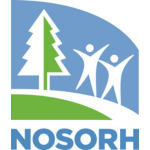by Beth Blevins
Like many other states, Connecticut is facing a drug crisis. The number of in the state nearly doubled between 2014 and 2015. More people die there from drug overdoses than from car accidents or firearms.
To combat this, the CT SBIRT (Screening, Brief Intervention and Referral to Treatment) program is training students who are enrolled in health profession programs to screen for substance misuse and to refer patients for treatment.
“The program focuses on the early identification of substance misuse among patients in medical, dental and other health care settings,” said Bonnie McRee, director of the at UConn Health. “SBIRT is a comprehensive public health approach that includes the delivery of early intervention for patients who may be at risk of developing substance use disorders in the future. Rather than waiting until patients have serious substance use problems, health professionals are learning to intervene earlier with patients before they need more intensive specialty services.” The goal, McRee says, is to catch individuals in primary care or dental settings where they come annually or on a regular basis.
The Connecticut Office of Rural Health (CT-ORH) supports the program and is helping to broaden its availability. “CT-ORH helped expand the program with outreach to Northwestern Connecticut Community College (NCCC), where CT-ORH is housed,” said Mary Winar, CT-ORH Manager. “SBIRT will be integrated into the at NCCC in 2017. And there will be an SBIRT training offered at the CT Medical Assistant annual conference in the Spring.”
Winar first learned of the SBIRT program many years ago from Rashad Collins, a member of the CT-ORH Advisory Board. Collins is the senior director of programs at the Community Health Center Association of Connecticut (CHCACT). CHCACT, a partner in the CT SBIRT collaborative, was instrumental in implementing the program into the clinical workflow in 11 CT Federally Qualified Health Centers. In addition, McRee and Alyse Chin, CT SBIRT Project Director, gave a on the program at the 2014 Region A SORH Regional Partnership meeting, which CT-ORH hosted. Winar also is a member of a county-wide Opiate Task Force, created three years ago. CT-ORH is assisting them with strategic planning, data collection, and health provider education.
CT SBIRT is funded by the Substance Abuse and Mental Health Services Administration (SAMHSA). Connecticut’s first grant (2011-2016) focused on implementing SBIRT services in primary care departments within FQHCs throughout the state. The current grant (2015-2018) will reach more disciplines, and will be incorporated into the dental medicine and dental hygiene curricula as well as in medical, nursing, and medical assistant curricula. The screening includes illegal drug use, prescription drug misuse, and alcohol and tobacco use. The current grant will include a special emphasis on adolescent drug use.
According to McRee, the aim is to train health professionals to screen all patients and to get them to think about their substance use. “By screening everyone, you are more likely to find not only individuals at risk of future problems but also those in need of more intensive substance use services,” McRee said. “This program trains health professionals to successfully refer patients to specialty substance use services in the same manner in which they refer patients to other medical specialists. SAMSHA is hoping with this grant program to better coordinate medical and substance abuse treatment services. It aims to integrate those services—historically that link has been broken.”
